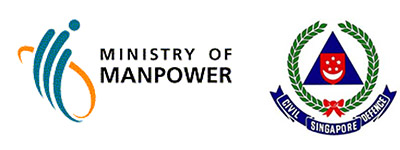Singapore issues HC refrigerant warning
27th February 2014 SINGAPORE: Air conditioning and refrigeration engineers in Singapore have been instructed to be extra vigilant following injuries and fatalities involving hydrocarbon refrigerants.
SINGAPORE: Air conditioning and refrigeration engineers in Singapore have been instructed to be extra vigilant following injuries and fatalities involving hydrocarbon refrigerants.
In a joint circular, the commissioners of Singapore’s Ministry of Manpower, Workplace Safety and Health department and the Singapore Civil Defence Force (SCDF) have reminded stakeholders that they have a responsibility “to ensure that operations, maintenance, repair and decommissioning works involving HC refrigerants are safe”.
With the rest of the world moving towards natural refrigerants like hydrocarbons, Singapore is putting strict controls on, and in some cases banning, the use of hydrocarbon refrigerants. They are being phased out in building air conditioning systems in Singapore by the end of 2016 due to safety concerns over their flammability. They are also being banned in mobile air conditioning and commercial refrigeration systems such as coldrooms in supermarkets, food storage factories and industrial process refrigeration systems. Strict controls and safety measures have also been placed on their use in domestic refrigeration and small residential air conditioners.
 Hydrocarbon refrigerant and technology suppliers in Singapore were first informed of the ban in 2010 when the SCDF said it had “decided not to continue to allow the use of HC as refrigerant in air-conditioning systems owing to the hazards it imposes on the safety of occupants in buildings”.
Hydrocarbon refrigerant and technology suppliers in Singapore were first informed of the ban in 2010 when the SCDF said it had “decided not to continue to allow the use of HC as refrigerant in air-conditioning systems owing to the hazards it imposes on the safety of occupants in buildings”.
In the official circular in December 2011, the SCDF said it had been working with other agencies since September 2009 to conduct a holistic review on the use of hydrocarbon refrigerants across various applications.
“While we recognise that HC refrigerants have an edge over some other refrigerants in terms of their environmental impact, the main consideration is that HC refrigerant is extremely flammable and would pose a potential safety hazard to users and occupants,” it said, and aded “These are additional risks which can be avoided if safer alternative refrigerants or other refrigerant blends are used.”
Casualties
Since that initial circular the SCDF says there have been incidents involving HC refrigerants with two of the incidents involving casualties.
“The first accident involved a case of flash fire when air-con servicemen were carrying out decommissioning work, resulting in one fatality and two workers injured,” says the joint statement. “In the second accident, HC refrigerant leaked from an AHU during normal operation and resulted in a flash fire. Two workers were injured in this accident.”
While the SCDF has not yet responded to questions from the Cooling Post, the first accident mentioned is thought to refer to an incident in August 2012 when a spark from a vacuum cleaner caused an explosion and fire which resulted in the death of one worker and injured two others who were servicing an air conditioning unit containing hydrocarbons.
The coroner said they probably didn’t understand the dangers posed by the gas in the air conditioning system. Because of that, a spark from a vacuum cleaner turned what seemed like a straightforward task of servicing an air conditioning compressor into a deadly one.
The court heard that the deceased, 22-year-old Abadul Jaynal Sikder and his two colleagues flushed the system and released the hydrocarbon refrigerant gas by using a hose connected to the compressor.
Mr Abadul was asked to remove waste water on the floor, but as soon as he switched on the vacuum cleaner, there was an explosion which caused a flash fire. The coroner said that the refrigerant conversion process had caused the accumulation of hydrocarbon gas in the room and that a spark from the vacuum cleaner ignited the gas and this caused the explosion and fire.
Mr Abadul was taken to the hospital where he developed bronchopneumonia following severe burns. He died four days later.
Safety measures
In this latest circular the SCDF says that companies handling HC refrigerants should ensure that workers handling HC refrigerants are fully aware of the fire and explosion hazard and the resulting consequence and that they are able to identify the type of refrigerant in the refrigeration system and its associated hazards via safety data sheets.
They are also instructed to develop and implement measures to prevent fire/explosion, which should include the removal or prevention of accumulation of HC refrigerant, the exclusion or effective enclosure of possible sources of ignition and the use of suitable flame-proof equipment.
It says that no welding, brazing, soldering or cutting operation should be conducted on any system that contains or has contained HC refrigerants until all reasonably practicable steps have been taken to safely remove the HC refrigerant and the system has been certified by a competent person to be free of HC refrigerant. Any certificate issued by the competent person should be kept available at all times for inspection.
The circular also instructs that hydrocarbon refrigerant should be kept, handled and disposed of in a safe manner and that building owners currently still using HC refrigerants should implement measures including disseminating adequate information on the hazards of HC refrigerant and displaying warning notices at all entrances of any workroom containing HC refrigerants and appropriate locations.
The building owners are also tasked to ascertain that all contractors have sufficient expertise in HC refrigerants, have conducted risk assessments, provided adequate ventilation and removed all potential sources of ignition from areas where there is possible HC refrigerant accumulation.







